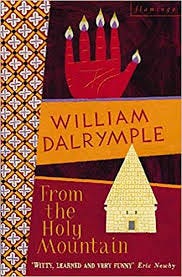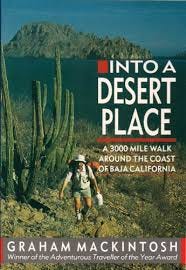We’ve been curating lists of the best books in various genres, from histories and poetry collections to crime novels and westerns, and more, all with self-isolation reading in mind. Today: Historian Wes Callihan suggests five classic travel books that are ideal for home-bound reading adventures. If you like this free content, please consider subscribing to the full FORMA Journal experience. It comes with the print edition, too, and you can save 20% when you subscribe now.

Sailing Alone Around the World
Joshua Slocum (1900)
Slocum, an aging but experienced sea captain and navigator, relates in this delightful first person narrative the story of how he found and rebuilt an old boat in a Massachusets pasture. He then sailed alone around the world from 1895-1898, becoming the first person ever to circumnavigate the globe solo. This is a maritime classic; a masterpiece of restraint even when describing harrowing adventures. I love sailing stories and this is just one among many I could have chosen. I fantasize about doing what Slocum did, though I never will. This book delights me not only because of what Slocum did, but how he sees and thinks about his adventures. We get not just another view of the world, but another mind, and an interesting one at that.

The Spiritual Meadow
John Moscus (7th century AD)
Writing in the early seventh-century AD, John Moscus, a monk, describes his travels with his young friend Sophronius (later to become the patriarch of Jerusalem) as they traverse throughout Syria, Palestine, Sinai, and Egypt. They visit monasteries and record stories they hear of hermits, abbots, monks, and bishops; of miracles, marvels, great holiness, and abject backsliding. A collection of very short anecdotes, it gives a marvelous picture of Christianity, especially monasticism, in the Middle East—the ancient heart of Christianity—before it was overrun by Islam a few decades later. The brief stories are astounding and I find them valuable, manageable, nourishing spiritual reading set in a fascinating travelogue. But this title must not be read without also reading the next one . . .

From the Holy Mountain
William Dalrymple (2000)
In the 1990s, Dalrymple followed Moscus's footsteps (with some additions) starting at Mount Athos in Greece and traveling, sometimes on foot, mostly by chicken bus, train, or hired car, through Turkey, Syria, Lebanon, Israel, and Egypt. Carrying Moscus' book with him, he gives a startling and often sad picture of the history of Eastern Christianity over the centuries and presently: how Christians in the Middle East have managed (or not managed) to survive relations with Islam, Judaeism, and modernism; what they have suffered from the violence, hostility, and dispossession that have been their lot continuously.

Tent Life in Siberia
George Kennan
In the 1860s, Kennan, a young American, signed on with the Russian-American Telegraph Company to explore Siberia for the first time, as the company hoped to connect Europe and America via telegraph cables through the Bering Sea and Siberia. The company's plan failed but Kennan wrote about his experiences in the Siberian wilderness in this classic (Annie Dillard praised it!) account of traveling and camping in extreme cold and snow, encountering wildlife and wilder natives, and enduring hardship with typical American frontier spirit. I enjoy this book partly because of Kennan's wit and dry humor and his clear descriptions of people and things, as well because of his Xenophon-like perseverance in a situation where most people would give up, lie down, and freeze to death.

Into A Desert Place
Graham Mackintosh
Mackintosh was a young English social worker who had never done anything extraordinary, but to prove to the youth he worked with that they could do anything they set themselves to, he decided to walk alone around the entire coastline of the Baja Peninsula in western Mexico—3,000 miles of barren, harsh, rocky, dry, rattlesnake and cactus-infested desert. His story is a fascinating, hair-raising, account of how he adjusted to solitude, a new language e, and the extreme rigors of desert travel. His descriptions and reflections are rather artless—he's not a brilliant stylist—but his writing is strong and personal and un-selfconscious. I have read it many times because it's the kind of thing I would have loved to have done and never will. But that's one of the glories of travel writing—you can do things vicariously that you'll never do in reality, see things through other people's eyes you'll never see with your own, and all this makes us more expansive souls.
Wes Callihan has taught for thirty-five yearsat two private schools, a college which he helped found, the University of Idaho, and his own online classes for the past twenty-two years. His online Great Books lectures have been filmed and produced by Roman Roads Media as a video curriculum called Old Western Culture. He also runs a live residence program at Hill Abbey (summer courses on the Early Church Fathers and a year-long “gap year” program), geared toward high school graduates. He has organized many tours for his students and their families to Greece and Turkey.
If you like this list, you’ll love what a full subscription gets you: 2 issues of our print journal each year plus weekly digital content covering the best books in culture, history, and religion being written today. Subscribe now!
Recently, from FORMA Journal


